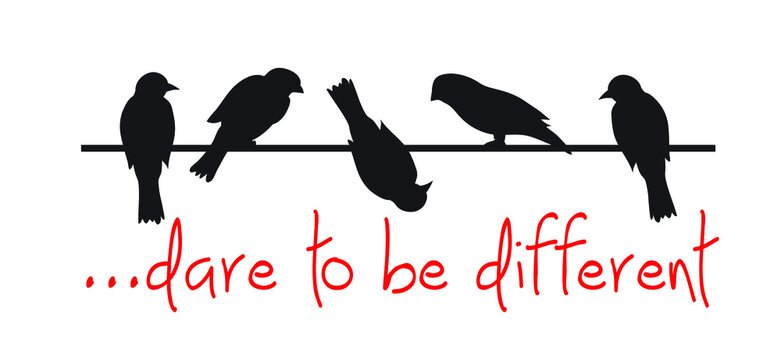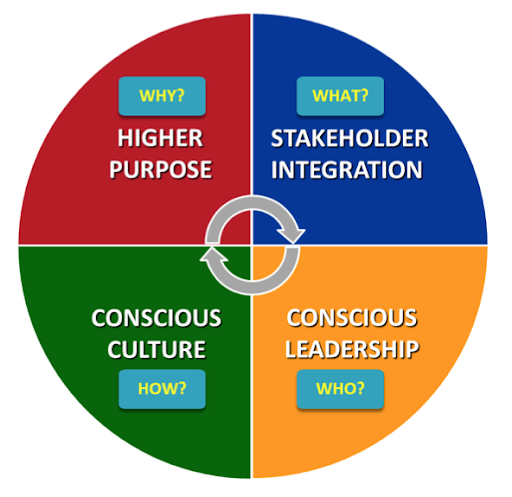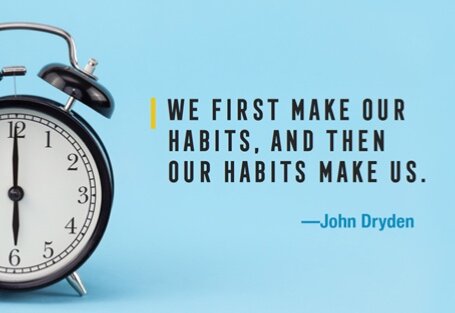A positive mind finds opportunity in everything, while a negative mind finds faults in everything. In addition to boosting productivity and promoting teamwork, coaching for performance can also help to reduce turnover rates and improve employee satisfaction. I think that when employees feel supported and valued, they are more likely to stay with your organization for the long term. Overall, when leaders focus on coaching for performance and creating a positive work environment, it becomes a smart investment in the future of your organisation. By fostering a culture of respect and inclusivity, your organisation will attract and retain top talent, drive innovation, and build a resilient workforce that is well-equipped to meet the challenges of a rapidly changing business landscape. Don’t take my word for it, check out the research from McKinsey & Co.
Leading with wisdom
Average leaders are effective at accomplishing tasks, while exceptional leaders excel in establishing environments conducive to others' success. I think that average leaders focus on solving immediate issues, whereas exceptional leaders concentrate on fostering growth as they bear the responsibility of cultivating a culture that empowers individuals to contribute their best. It's amazing how productivity, morale, and mutual respect increase when team members hold each other in high regard, and this contributes to stronger interpersonal relationships. Wise leadership derives from the pursuit of diverse perspectives, embracing open listening without defensiveness, and leveraging knowledge for the collective benefit rather than personal gain. What type of leader are you?
Dare to be different
Our infatuation with violence has given rise to a culture that should not be a source of pride. This is due to the fact that violence sells, we are all familiar with the saying, "If it bleeds, it leads," but this approach does not contribute to the development of a culture worth celebrating. Instead, I think we should adopt the mindset of not caring about the number of followers we have and refrain from pressing the boost button, as our primary goal should not be to appease platforms like Facebook, Instagram, or Twitter. Our true objective is to create a body of work that brings us a sense of pride, focusing on cultivating a modest but dedicated audience that can provide support, be it 10, 100, 1,000, or 10,000 individuals. Once we become comfortable with having enough in a world of endless possibilities, the amount of noise we generate becomes inconsequential.
Barriers to risk
I see organisations today trying to reduce expenses by hiring inexperienced people to pound the phones, e-mails to arrange meetings and rush the sales process without looking into how companies buy. I think that it’s a good idea to look at the company culture and determine how much risk they are willing to take. Are they really involved in innovation or it’s more of a lip service?
The following questions will give you a feeling of what their culture really is like:
1. Do their executives lead by example?
2. How much experimentation is allowed?
3. How much resources (time and money) do they put into new ventures
4. What metrics are they measuring?
5. And are those metrics connected to new things, for example, new to the market type of products?
Over the past few years, I have studied corporate cultures and change, and what fascinates me is when we speak about change is that we think in terms of “Good vs. Bad.” I don’t think it’s as simple as that, I think corporate complacency is the worst kind of culture. I think the world has become so complexed that we keep more and more ridiculous processes in place. And this results in employees becoming complacent and no longer think that they can affect change, they just give up and hide behind the mentality of “things are just fine!” Contact me via e-mail when you willing to make incremental change in your organisation.
Self reflection
As transparency rises in society, particularly in the business world, there will be more and more open feedback demanded about leadership performance. Knowing how to lead yourself means knowing the answers to the following questions:
What is my purpose in this work?
What motivates and demotivates me?
What are my values and how am I honouring them in my work?
What are my strengths and weaknesses, and how am I working on them?
How do I overcome challenges and re-energise?
What do I tend to resist or ignore?
Your answers may change over time, but they are worth reflecting on if you are serious about remaining a leader. Contact me via e-mail to arrange a meeting.
Telling yourself stories may have bad side effects
There is not a huge difference between reporting and storytelling. For example, if five people see a bicycle accident, does one person see what actually happened and the other four are wrong, or do all five persons process what they have seen in their own way?
We know that all human beings process incoming information by telling themselves a story about what they saw, a story about what change it will require, a story about how it fits into their existing world. These stories need fertile ground to grow and that comes from our culture. Culture is all around us, culture beats the truth, culture beats any offer you can make. We have to understand the culture, we have to understand the world view, we have to understand the perspective of the people we are talking to.
I think that anyone who wants to make change has to tell a story that resonates with the people who are hearing it. I have guided companies that look good and want to be great. My business is desire and desire is the backbone of storytelling! I cannot help organisations to compete on price, therefore, all my offerings are focused on helping them compete on storytelling. And I do this by changing the narrative and looking at their strategy, culture, customer experience, etc.
Contact me via e-mail to arrange a virtual meeting.
Detroit vs. Pepsi
Detroit in the State of Michigan came into my periphery as it was the home of Motown. Detroit is also known as the motor city - back in the days the Big Three car manufacturers (Chrysler, Ford and General Motors) had their headquarters there. Nowadays, it is the second poorest city in America and famous for D12 and Eminem. Well done to Pepsi for recognising the talent in the city.
Facts on Friday
The way we change the culture is not by getting a trending headline on social media, I think we change the culture by establishing that people like us do things like this. Culture is driven by media and media is driven by a business model. We all believe that we see the world as it is, in reality we live in a culture and that culture changes what we see.
Even though the world is safer and healthier than it has ever been before, even now during the Covid-19 pandemic, no one believes that is true. What has happened over the past 20 years is that the media business model has dramatically changed, and therefore, the reason that people don’t think that the world is safer and healthier is because the media does not want us to think that this is the truth. The higher powers have decided that society makes the most profit when we are on edge, insecure and feeling insignificant. #justsaying
What makes a great leader?
I think you need to be passionate about what you are doing and have these three qualities:
You need to be honest with your team,
You need perseverance, and
You need to be decisive
In my experience this is what all leaders have in common:
Leaders have charisma!
You don’t need charisma to become a leader as being a leader gives you charisma.Leaders build a culture!
By using a secret language that shows whether you are in or out.Leaders have curiosity!
I mean they have curiosity about people both in and outside of the community.
Learn how to sell
You cannot change the system all at once, but what you can change is the voice in your head. And if the voice in your head is holding you back then that's not helping, in reality, what this means is the power structure has corrupted the voice in your head and put it to work for themselves. What is essential, whatever we are trying to get people in power to listen to, is to first change the voice in our own head. Find out how to befriend the “lizard brain” and the resistance, and not let it sabotage what we are doing. I think that what people like in us, is our confidence, our authority, our belief in what we are actually doing and working that out helps us get 80% of the way there.
Learning how to sell, learning how to talk to somebody about something you care about and getting them to believe you and pay you money for it. Nowadays, we are in the ideas business, I mean we have the opportunity to show up with an idea that’s worth more than it costs. And some people are going to be stuck in their “old ways”, so afraid of a person like you that they are not going to buy from you, but their competition will and that’s how we change culture. We change the culture because the losers learn a lesson, and the lesson they learn is that diversity pays off.
It doesn’t matter what the messenger looks like or the clothes the messenger is wearing, what matters is what will get you to move forward. I am optimistic that we are at the cusp of this cultural change happening even more. Hopefully people will look beyond DNA, gender or sexuality and start to understand that seeing people for who they are and understanding ideas for what they offer is where we need to go. Along the way a lot of people like me are paying the price. It’s bad enough that you have to deal with the voices outside of your head but you can begin by straightening out the voices in your head, because this is something that everyone has wrestled with. It’s always that same voice, learn how to dance with it, learn how to befriend it to understand that we have got a chance.
How to change everything?
The effects of Covid-19 and the measures put in place to combat it over the past 7 months have brought severe changes to all our lives. It is more important to know where you are going than to get there quickly. The pandemic has shown me, almost instantly, that the path I had anticipated for 2020 was not going to materialize.
True curiosity is not simply the gathering of information, it’s the questioning of information gathered. I think we have to get better at asking our audience what they want from us, improve how we engage with consumers and re-evaluate our business models. You don’t need permission from people to lead them, they are waiting, we are are all waiting for you to show us where to go next.
Why Do We Do What We Do?
The great Zig Ziglar said, “Motivation gets you going, and habit gets you there. Make motivation a habit and you will get there more quickly and have more fun on the trip. You are free to choose, but the choices you make today will determine what you have, be and do in the tomorrow of your life.”
We are not in the business of knowledge transformation we are in the business of skill acquisition. Do you know the difference between a skill and a habit? A skill is the ability to do something well and a habit is something you do mentally or physically, that starts as a choice and then becomes a nearly automatic pattern.
In reality, a habit is the function of our subconscious mind. There is no greater evidence of the marvelous power of our subconscious than the force and sway habit holds in our life. We form habits in our subconscious mind by repeating a thought or behavior and act it out over and over again until it establishes tracks in our subconscious mind and becomes automatic. What percentage of our daily behaviors are choice? Studies have shown that between 40 and 45% of what we do each day are habits. Therefore, when we understand how habits work, then rather than being the consumer of our lives, we become the creator.
The Power of Habits training is about teaching leaders and individuals how to leverage habits so that they can improve results. The key to exercising regularly, losing weight, being more productive and achieving success is understanding how habits work. The Power of Habits training will do 3 things: increase performance, improve outcome and ignite culture. Performance is what we do, results is what comes from our actions, and culture is how we behave.
We change the world by changing behavior and there’s a process to that and at Peak Balance (Vital Smarts), our digital learning tools can help facilitate training outside the traditional classroom settings. We have put together a series of micro-trainings which consist of a series of short, focused learning modules that are delivered through Adobe Connect. These trainings have proved to be highly effective at accelerating onboarding and improving retention.
For further information - contact: sb@peakbalance.dk
Crucial Conversations Training
Did you know that I am a certified Crucial Conversations Trainer?
Crucial Conversations teaches skills for creating alignment and agreement by fostering open dialogue around high-stakes, emotional and risky topics - at all levels of your organization. By learning how to speak and be heard (and encouraging others to do the same), you’ll surface the best ideas, make the highest-quality decisions and then act on your decisions with unity and commitment.
What Is a Crucial Conversation?
A crucial conversation is a discussion between two or more people where the stakes are high, opinions vary, and emotions run strong. These conversations - when handled poorly or ignored - lead to strained relationships and dismal results.
What Does Crucial Conversations Training Teach?
Crucial Conversations teaches participants how to:
• Speak persuasively, not abrasively
• Foster teamwork and better decision making
• Build acceptance rather than resistance
• Resolve individual and group disagreements
Who Needs Crucial Conversations Training?
Does your organization suffer from taboo topics, deference, disagreement, analysis paralysis, information hoarding, office politics or alienation? Is your organization battling declining productivity, safety violations, low morale, reduced quality, poor customer satisfaction or other bottom-line concerns? Then you, your team, or your organization needs Crucial Conversations Training.
My aim is to guide teams, leaders and entrepreneurs on how to focus on your company’s performance and culture by integrating open communication into the heart of your business. Crucial Conversations workshops are two days and ideally have a minimum of six participant. For further information please contact me.















